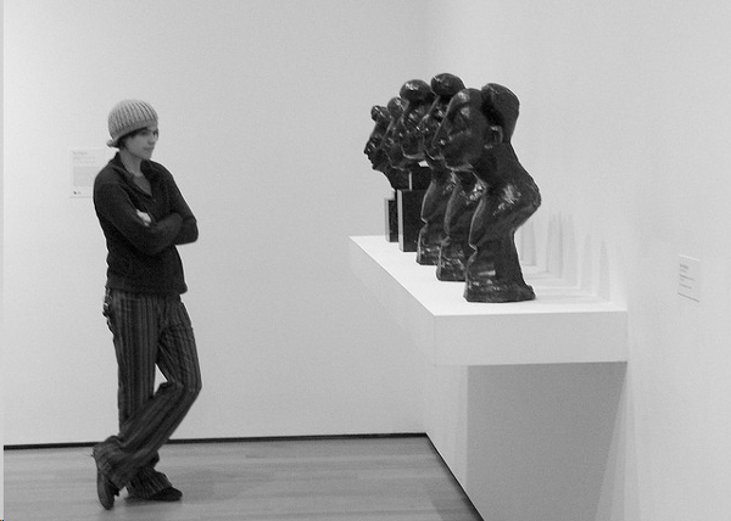Rebel Without a Cause: The Eventual Demise of the Hipster

The hipster is dying. Or rather, the culture of the hipster is dying. As its dogma is being absorbed into the mainstream, what options are left for the originals but to fade and maybe reincarnate as a new subculture?
The hipster has never been completely defined. Websites such as UrbanDictionary.com and the comedy site Cracked state characteristics of today’s hipster: an appreciation for Pabst Blue Ribbon Beer, the tendency to wear thrift-store and vintage threads, having obscure music tastes and being obsessed with being different from the mainstream. Hipsters operate under irony.
There are hipsters who live for music, hipsters who idolize past decades, people who fancy the hipster lifestyle, etc.
The vibe hipsters give off is “cool;” they are the James Deans of our generation, rebelling against society by the mere act of existing. As stated in Time magazine, “Everything about [hipsters] is exactingly constructed to give off the vibe that they just don’t care.”
These characteristics are mostly shown in a negative light, as pointed out by the 2010 Guardian article, “Why do people hate hipsters?” The article chronicles the appearance and multitude of anti-hipster blogs on both sides of the Atlantic: Look at this F**king Hipster, Unhappy Hipster, and Hackney Hipster Hate, to name a few. These blogs aren’t alone in their distaste for hipsters; articles abound criticizing the group, and when brought up in conversation, the majority of remarks are harsh.
Historically, the hipster is the newest wave of the counterculture movement; their predecessors are the Beatniks, hippies, punks and hip-hop enthusiasts. These groups had agendas and worked for social causes; rioting, rebelling and producing works that would in turn change standards and even government policies.
What is perhaps most peculiar about the hipster culture is, as many say, its inability to create. Hipsters are, in essence, consumers—buying products to produce their structured, unassuming looks. Hipsters also rehash; as worshippers of authenticity and originality, they draw upon influences strictly in the past.

The word hipster itself is recycled, originally intended to define the white middle-class men of the 1950s who imitated the African-American jazz musicians and their lifestyles. As explained in Norman Mailer’s essay, “The White Negro,” its opening paragraph describes the modern hipster perfectly: “Our search for the rebels of the generation led us to the hipster. The hipster is an enfant terrible turned inside out. In character with his time, he is trying to get back at the conformists by lying tow ... You can’t interview a hipster because his main goal is to keep out of a society which, he thinks, trying to make everyone over in its own image.”
So what have hipsters contributed to our culture? Not much, apparently. Hipsters today are ideal consumers—they buy products to cultivate an image. Prior to the rise of the hipster, the hip-hop movement employed socially conscious lyrics in their music to raise awareness about various social and political issues. While there may be some original hipsters—say, green-savvy hipsters who use bikes as a means of transportation, who fight for societal changes, they are overshadowed by the fashion-conscious, consumer-hungry, narcissist hipsters of today.
It is interesting to note that very few individuals actually label themselves as hipsters. Nowadays, there is a thin line between being a hipster and simply part of the mainstream. So much has been borrowed from hipsterdom—the fashion (Urban Outfitters and American Apparel), the music (Arcade Fire winning and performing at the Grammys), the lifestyle (photographing and blogging everything). The only way for the hipster to retain his or her identity is to shun the very label that has been created for him or her. It is an awareness that to label oneself is to become mainstream, and therefore lose all credibility.
In Austin Powers: International Man of Mystery, Dr. Evil says to Austin Powers, “There is nothing more pathetic than an aging hipster.” While the original hipster will cling to his or her beliefs, which is more admirable, the modern hipster will cling to his or her perception of cool. The hipster will be constantly fighting against the mainstream as time goes on, and perpetually losing as consumerism rises, unless this counter-culture can find a productive niche.
Author Bio:
Gabriella Tutino is a contributing writer at Highbrow Magazine.
For Highbrow Magazine
Photos: Oiniono, Flickr; Harlan Harris, Flickr (Creative Commons).






























































































































































































































































































































